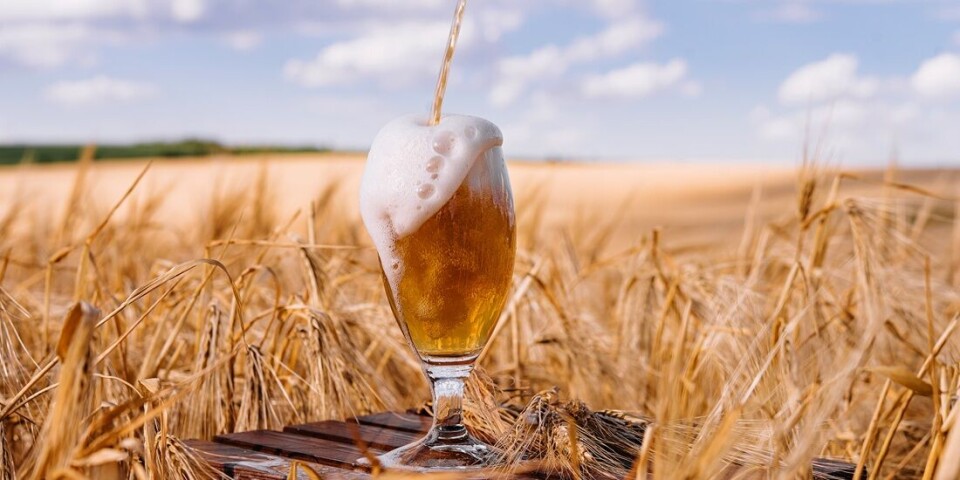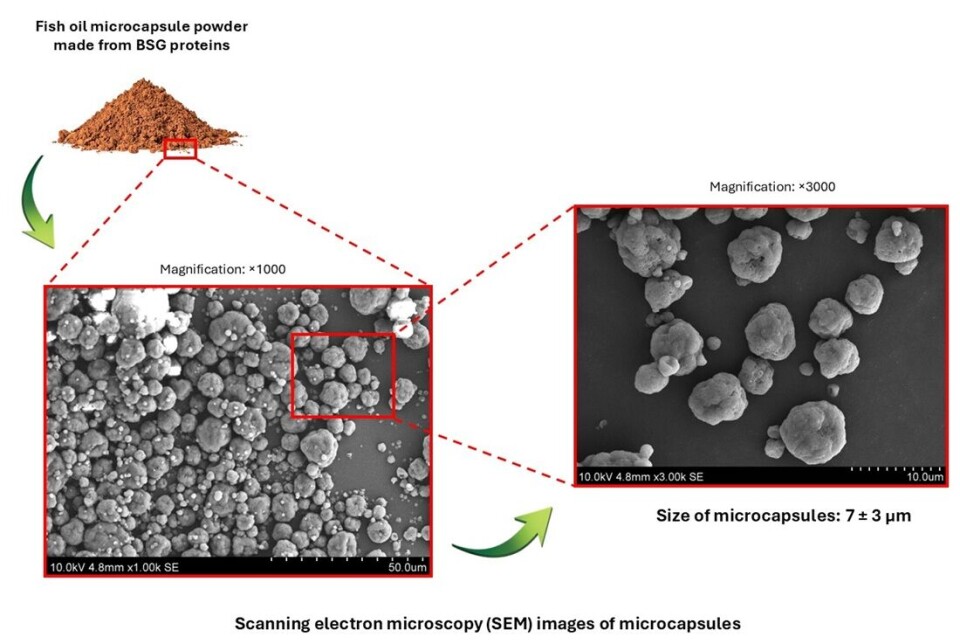THIS CONTENT IS BROUGHT TO YOU BY NTNU Norwegian University of Science and Technology - read more
Beer residues can give us useful fats and medicines
The spent grain from beer brewing can be used to make microcapsules that can preserve omega-3 oils and medicines.

The residues that remain when a brewery makes beer or whiskey are called spent grain. Spent grain is available in large quantities, and is full of proteins and amino acids that should be possible to use.
In practice, however, spent grain is mostly used as an additive in animal feed, unless it is simply thrown away.
Now it turns out we can use spent grain for something useful for humans.
“This is a valuable source of protein with excellent properties. More people are therefore interested in using spent grain as an alternative to animal protein,” says Toktam Farjami, who is taking her PhD in food science at NTNU.
She has looked at different possibilities for the industry to use the raw material.
Suitable for making capsules
“The proteins in spent grain are water-repellent. At the same time, they act as emulsifiers, and help mix substances that don’t necessarily want to mix. The proteins can also be used to create a protective film,” she explains.
This makes spent grain a good candidate for a very special task.
“The proteins in spent grain are promising for making the walls of microcapsules for fish oil and other food products that contain healthy omega-3 fatty acids,” says Farjami.

Experimenting at the molecular level
It’s not exactly simple to achieve this. These microcapsules must be stable over long periods of time.
“To prevent oxidation and preserve the health effects of fish oil, it's crucial that we make effective and durable capsules,” she says.

This is the first study to look at the possibilities of using the proteins in spent grain for exactly this purpose. She and her colleagues have studied the proteins at the molecular level to understand them as well as possible.
They made protein concentrates from spent grain using an alkaline extraction method. At the same time, they investigated the effect of different precipitating agents and gentle heating on composition, encapsulation, and several other aspects of the concentrates.
Can increase the value of spent grain
These properties were improved when they replaced hydrochloric acid with citric acid in the prtein extraction process, while also adjusting the acidity level.
“We see that the microcapsules can preserve fish oil so that it's as good as fresh oil, even after storing them for 15 days at 40 degrees,” says Farjami.
Microcapsules like this can also be used to store medicines. The cosmetics industry can also benefit from them.

These promising results suggest that spent grain can become a valuable product that reduces food waste, contributes to a healthier diet, and many other useful things. That’s a far better alternative than throwing it away.
Need to make better use of resources
“In the future, we must make far better use of our resources than we do today. This requires not only technological research, but also insight into raw materials, market potential, and consumer behaviour. That’s why research like this is so important,” says Professor Eva Falch, Farjami’s supervisor.
Falch explains that many byproducts from food production are not currently used. This is the case both in the seafood industry and in the beverage sector. She says it’s crucial that society develop methods to use every bit of the raw material used in food production.
Toktam’s research shows how residual products can gain new value in a circular bioeconomy.
“The exciting thing here is how a residual stream from one industry – the brewing industry – can become a functional ingredient in another. These are the kinds of interdisciplinary innovations we need to build the sustainable food systems of the future,” says Falch.
Reference:
Farjami et al. Microencapsulation of fish oil with brewer’s spent grain proteins: Effect of citric acid and emulsion pH, Food Hydrocolloids, vol. 150, 2024. DOI: 10.1016/j.foodhyd.2024.109745
———
Read the Norwegian version of this article on forskning.no
More content from NTNU:
-
Fish farming is least harmful to the seabed in the north
-
Study: Centralising hospitals has reduced birth mortality
-
Early testing of schoolchildren: “We found absolutely no effect”
-
This determines whether your income level rises or falls
-
Why is nothing being done about the destruction of nature?“We hand over the data, but then it stops there"
-
Researchers now know more about why quick clay is so unstable





































